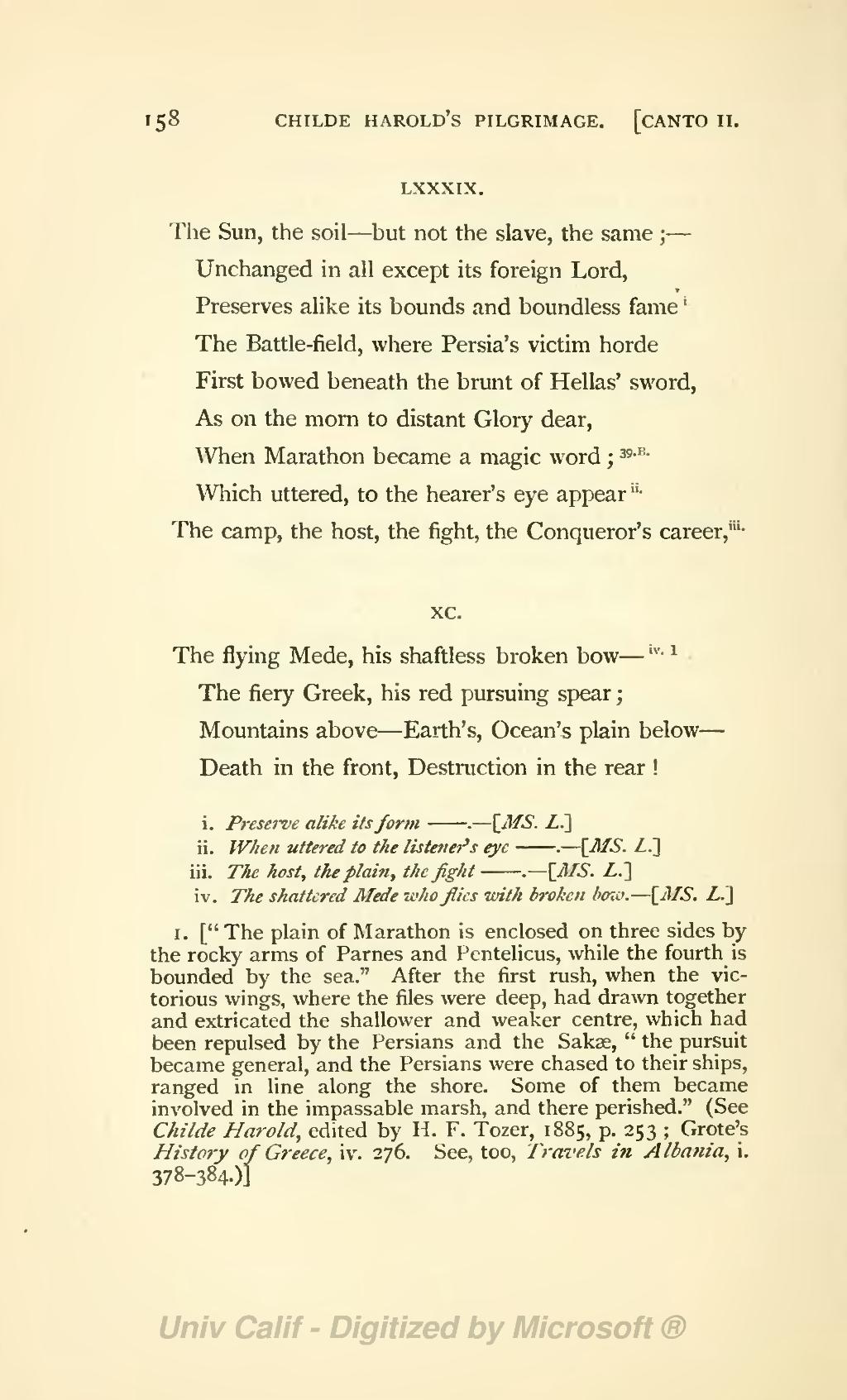158
CHILDE HAROLD’S PILGRIMAGE.
[CANTO II.
LXXXIX.
The Sun, the soil—but not the slave, the same;—
Unchanged in all except its foreign Lord,
Preserves alike its bounds and boundless fame[1]
The Battle-field, where Persia's victim horde
First bowed beneath the brunt of Hellas' sword,
As on the morn to distant Glory dear,
When Marathon became a magic word;N39
Which uttered, to the hearer's eye appear[2]
The camp, the host, the fight, the Conqueror's career,[3]
XC.
The flying Mede, his shaftless broken bow—[4][5]
The fiery Greek, his red pursuing spear;
Mountains above—Earth's, Ocean's plain below—
- ↑ Preserve alike its form ——.—[MS. L.]
- ↑ When uttered to the listener's eye ——.—[MS. L.]
- ↑ The host, the plain, the fight ——.—[MS. L.]
- ↑ The shattered Mede who flies with broken bow.—[MS. L.]
- ↑ ["The plain of Marathon is enclosed on three sides by the rocky arms of Parnes and Pentelicus, while the fourth is bounded by the sea." After the first rush, when the victorious wings, where the files were deep, had drawn together and extricated the shallower and weaker centre, which had been repulsed by the Persians and the Sakæ, "the pursuit became general, and the Persians were chased to their ships, ranged in line along the shore. Some of them became involved in the impassable marsh, and there perished." (See Childe Harold, edited by H. F. Tozer, 1885, p. 253; Grote's History of Greece, iv. 276. See, too, Travels in Albania, i. 378-384.)]
